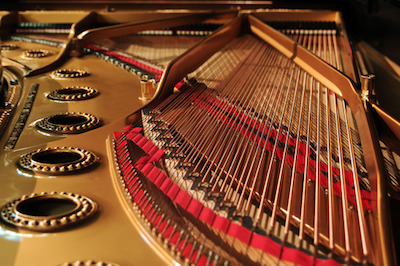The new year is filled with goals and resolutions to make this the best year yet. For many, their goals include becoming a better piano player. No matter if you’re just starting out or have been playing for years, the key to better playing is to improve the way you play. It’s not all about getting into more difficult music patterns. Sometimes your approach needs a little tweaking.
Start with new music
This is one of the easiest places to start. Are you stuck in a rut? Do you tend to go with the same composers or genres over and over again? Break out of your patterns and explore new music. Pick up classical. How about pop? Every artist or genre offers you something new to build into the way you play. If you’ve worked with an instructor for a while, ask for different challenges to improve your skills. Maybe now is the time to move to group lessons or pick up a partner for a duet? 
Set new goals
While many players simply start the year by saying they want to play better, what does that mean to you? If you pursue a tangible objective, it’s easier to tally your work along the way. Select challenging pieces of music you’ll aspire to play. Or maybe you’ve desired to begin to play in public; a music festival or concert can be a great motivator. Rapid improvement always follows a decisive change in your approach.
Add a warm up routine
Many piano players sit down and begin to work on their latest piece of music. Like athletics, it’s important to warm up before every session you bring on. Warm ups take a few minutes but can make a world of difference in your focus, your concentration, and your finger power. Scales are always a good place to start. Watch your movements and focus on how finger joint performs as you increase your speed and velocity. What works for you? What can you change?
Play from memory
If you’ve never memorized a piece before, now may be the time. Playing from memory isn’t required for simple pleasure playing, but the more active you become in the industry, the more it is required. Give yourself a challenge. Start small. Take a short piece and work on memorizing each hand. Learning memorization skills will help direct your attention to the music and the sound you are producing. It sharpens your listening skills along the way.
Practice pedaling
It might also be time to incorporate pedaling into your piano practice. The use of the sustaining pedal (right) and una corda pedal (left) are commonplace for pianists from the beginning to advanced levels. But how about the sostenuto pedal (middle)? It can be fun to incorporate new sounds and actions into your daily routine. Ask your teacher for ways to use this as you improve your playability.
With some thought, you can make this year full of changes and advancement that will keep you excited about all the opportunities piano playing brings into your life.

